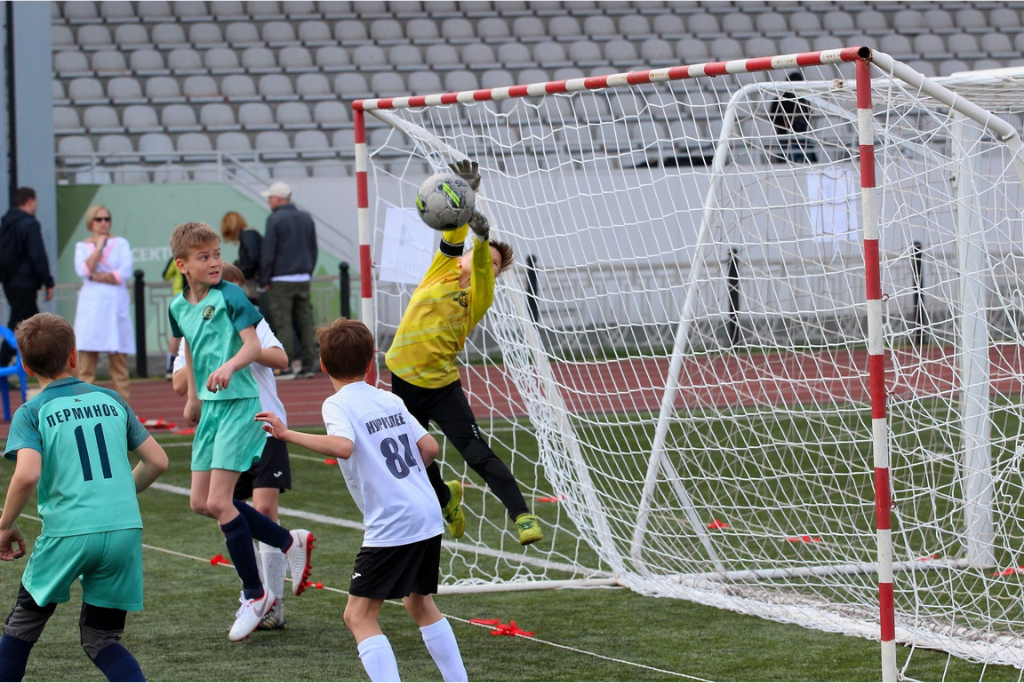Why Confidence Is the Foundation of Youth Success
Confidence is more than just self-esteem—it’s a skill that drives a child’s growth, happiness, and success. In today’s fast-paced, digital world, where screens often replace play, youth sports programmes play a vital role in nurturing confidence, social connection, and mental strength.
At Youth Rescue Project, we believe that every child deserves the chance to experience the life-changing benefits of sports. From teamwork and leadership to overcoming setbacks, youth sports programmes for kids are powerful tools for building the inner confidence needed for lifelong achievement.
Understanding the Role of Confidence in Child Development
What Is Confidence and Why Does It Matter?
Confidence is a child’s belief in their own abilities—a mindset that says, “I can do this.” It helps children:
- Take initiative
- Handle challenges with resilience
- Embrace growth rather than fear failure
- Build social skills and leadership potential
Research from the American Academy of Pediatrics (2024) shows that children who participate in structured sports activities demonstrate greater emotional stability, self-control, and academic success.
At Youth Rescue Project, confidence is treated as a core skill—developed through positive coaching, consistent encouragement, and real-world experience.
How Low Confidence Affects Children’s Growth
Children with low self-confidence may:
- Avoid challenges or competition
- Feel anxious in social environments
- Struggle with self-expression
- Experience academic underperformance
By contrast, confident children are more likely to set goals, communicate effectively, and develop leadership skills early. Youth sports programmes for kids offer a safe and supportive environment to nurture this confidence.
How Youth Sports Programmes Build Confidence Naturally
Learning Through Achievement and Effort
In sports, kids learn that success comes from effort and persistence, not just talent. Every practice, win, or even a loss teaches children the value of hard work, teamwork, and growth.
At Youth Rescue Project, coaches celebrate small milestones, helping children connect consistent effort with positive outcomes. This growth-oriented mindset is essential to developing confidence both on and off the field.
Teamwork Builds Connection and Self-Trust
When kids work together toward a shared goal, they learn cooperation, empathy, and responsibility. Team sports encourage communication, accountability, and trust—key pillars of both confidence and leadership.
Through our Youth Rescue Project sports programmes, children participate in age-appropriate team activities that foster collaboration and inclusion, making every player feel valued.
Encouragement From Coaches and Mentors
A great coach can change a child’s life. Coaches who emphasize effort, respect, and growth over winning help children feel supported, motivated, and capable.
At Youth Rescue Project, our certified mentors use positive reinforcement techniques to ensure every child leaves practice feeling proud of their progress.
Emotional and Social Benefits of Confidence Through Sports
1. Improved Communication Skills
Children learn how to express ideas, give feedback, and encourage teammates. Confidence enables them to speak up, lead, and resolve conflicts effectively.
2. Leadership and Responsibility
Sports often give kids leadership opportunities—such as being a team captain or leading warm-ups. These moments teach decision-making, accountability, and empathy.
At Youth Rescue Project, we focus on youth leadership development by rotating leadership roles, helping each child experience the responsibility of guiding others.
3. Handling Success and Failure Gracefully
Confidence isn’t built by winning—it’s built by bouncing back after losing. Learning how to accept defeat, reflect, and try again builds resilience—a core component of self-confidence.
Youth Rescue Project programs help children understand that failure isn’t the opposite of success—it’s part of the journey.
4. Positive Peer Relationships
Sports teams form natural social circles. Children gain friends who share goals, values, and mutual respect—which further reinforces belonging and confidence.
The Science Behind Confidence and Sports
How Physical Activity Affects the Brain
Exercise triggers the release of endorphins and dopamine, the brain’s “feel-good” chemicals. This not only reduces anxiety but also improves focus, motivation, and mental clarity.
Studies by the CDC show that children who engage in regular physical activity experience:
- 20% better academic performance
- 30% improved mood stability
- 40% higher self-reported confidence levels
This science forms the foundation of Youth Rescue Project’s mission—using sports as a holistic tool for emotional, mental, and physical growth.
Growth Mindset in Sports Psychology
A growth mindset—the belief that abilities can be developed through effort—is central to confidence building. Sports naturally reinforce this mindset: each practice, mistake, and win becomes a lesson in self-improvement.
Youth Rescue Project integrates growth mindset techniques into every program, helping kids say, “I’m not there yet, but I can get there.”
Long-Term Impact of Confidence Built Through Sports
Academic Achievement
Confident kids tend to perform better academically. Sports teach time management, discipline, and perseverance, which directly translate into school performance.
A confident student is more likely to participate in class, take initiative, and lead group projects—skills learned first on the playing field.
Emotional Intelligence and Self-Regulation
Youth who learn teamwork also develop empathy, patience, and self-awareness. These emotional intelligence traits prepare them to navigate life’s social and professional challenges successfully.
Leadership Beyond the Field
The leadership skills developed in sports—decision-making, strategy, and motivation—extend into adulthood. Former athletes often become successful professionals, community leaders, and entrepreneurs.
At Youth Rescue Project, our alumni often return as mentors, proving how confidence built in youth sports can ripple throughout a lifetime.
How Youth Rescue Project Empowers Confidence in Kids
Our Mission and Philosophy
Youth Rescue Project was founded on the belief that every child deserves access to the benefits of sports—regardless of background, ability, or financial circumstances.
Our programs combine athletic training, mentorship, and mental well-being support to nurture children’s self-confidence and resilience.
Inclusive Sports Programs for All Kids
We design programs tailored to different age groups and skill levels, ensuring every child feels valued and successful. From beginners to young athletes, each participant receives personalized attention.
- Beginner Confidence Program: Builds basic coordination and a positive mindset
- Team Leadership Camp: Encourages communication and teamwork
- Youth Mentor Program: Teaches older participants to guide younger peers
Positive Coaching Approach
At Youth Rescue Project, coaches are trained in psychological safety and motivational coaching, emphasizing encouragement over criticism. This ensures kids associate effort and growth with joy—not fear of failure.
The Role of Parents in Building Confidence Through Sports
1. Encouraging Without Pressure
Parents should focus on effort, not just results. Celebrate participation, improvement, and teamwork instead of only wins or goals scored.
2. Modeling Positivity and Resilience
Children mirror their parents’ attitudes. When parents show optimism and perseverance, kids internalize the same mindset.
3. Partnering With Youth Rescue Project Coaches
Parents and coaches should collaborate to ensure consistent messaging, reinforcing confidence, respect, and responsibility at both home and practice.
At Youth Rescue Project, we hold parent workshops to help families understand the psychological benefits of sports and positive reinforcement techniques.
Overcoming Common Barriers to Confidence in Sports
Fear of Failure or Rejection
Many kids hesitate to try new sports because they fear mistakes or embarrassment. Programs like Youth Rescue Project provide a safe, judgment-free environment that promotes exploration and learning through play.
Performance Pressure
When performance becomes more important than participation, confidence can crumble. Our coaching model prioritizes enjoyment, skill growth, and character building over winning.
Social Anxiety or Bullying
Sports offer an opportunity to address social challenges head-on. Youth Rescue Project ensures that inclusivity and teamwork are emphasized to eliminate competition-based tension among peers.
How to Choose the Right Youth Sports Programme for Your Child
1. Focus on Values, Not Just Skills
The best programs emphasize sportsmanship, respect, and confidence building, not just physical ability.
2. Ensure Qualified, Positive Coaches
Coaches should be trained not only in sports but also in child psychology and motivation. At Youth Rescue Project, every coach completes empathy-based leadership training.
3. Look for Inclusivity and Safety
A good program welcomes all children—regardless of athletic background. Safety protocols, mentorship support, and adaptive activities ensure every child can thrive.
Confidence and Mental Health in Youth Sports
Reducing Anxiety and Building Emotional Resilience
Sports participation lowers stress hormones and teaches coping mechanisms for pressure. Children who play sports regularly show lower rates of anxiety and depression.
Boosting Self-Worth and Body Positivity
Confidence in physical ability often translates into positive body image and self-acceptance, especially crucial during pre-teen and teen years.
Encouraging Lifelong Physical and Mental Wellness
Children who develop healthy habits through sports are more likely to maintain fitness, social connections, and confidence throughout adulthood.
Final Thoughts: Building Confident, Capable Kids Through Sports
Confidence doesn’t happen overnight; it’s built through experience, encouragement, and community. Youth sports programmes give kids a stage to learn resilience, discipline, teamwork, and leadership in ways that classrooms alone can’t.
At Youth Rescue Project, we don’t just teach sports—we empower children to believe in themselves, overcome fear, and embrace challenges with courage.

